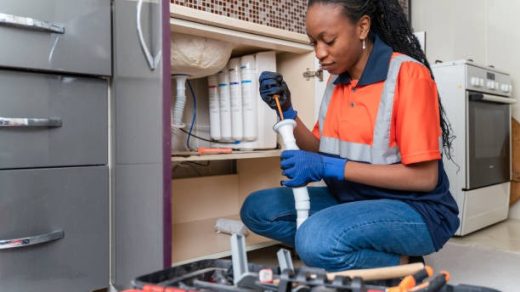Pointers to Remember When Handling Water Damage in Your Home
Water damage is a property emergency that must be resolved right away. Damage made by it could endanger people’s health in the affected home. It might also cause significant monetary loss if the damage is severe or the insurance provider does not cover the repair services.
So, what can you do if your home has water damage?
What to Do After a Water Damage in Your House
As a property owner, among the most horrible feats you might undergo is severe water damage or flood. Broken pipelines, dripping appliances, and more critical concerns like swamped basements, sewage backups, and even water damage after a tropical storm might all be huge issues. Also, mildew might form in at least 24 hours from even the least amounts of water.
Below are four steps you can take when water damage occurs in your house:
Keep Everyone Safe
Safety needs to be the priority. As a result, shutting off the main power source is advised to avoid electrocution or a fire. Whenever you discover water damage, you must act right away and identify the source.
Here are the common sources of water damage you must look out for:
- Leaky pipes
- Burst pipelines
- Water leaks
- Damaged appliances such as washing machines or water heaters
- Exposed water supply lines
- Septic tank overflow
- Obstructed drains
Examine the Damage
Identifying the degree of water damage can help you file insurance claims. Take pictures or videos to validate this to your insurance provider. Take as many pictures or videos as possible before, during, and after the cleaning to document the extent of the damage. This evidence can provide your insurer with a detailed report of what occurred. It can also help you know how to continue with the water damage restoration.
Remediation firms like the trusted Fort Worth restoration companies are needed to assess the damage comprehensively. Having an expert analyze the damage allows a correct estimate of the needed repair and enhances your possibilities of earning a reasonable payment from insurance companies.
Contact Your Insurance Company
If homeowners insurance protects your house, you need to call your insurer. Homeowner’s insurance policy covers unexpected and unintentional damage, so you could get coverage even if a prolonged concern, such as slow roof leakage, caused the damage. However, you may require extra coverage in flood-prone locations to protect your home from flood damage. You must consult your insurance provider to guarantee you have the right coverage.
Start the Repairs
Your household might be allowed to stay in the unaffected locations of your home, depending on the level of the damage. However, if the house needs extensive repairs, you may require to find a temporary home. Getting water removal sevices from remediation companies is essential to undertake the necessary repairs, cleaning, and restoration. These firms are accredited, qualified, and ready to manage your disaster.
Additionally, ensure a fair rate for the specialist’s service within the specified duration. The time required to fix the damage is relative to its intensity. Standard water damage repair services include:
- Sealing off affected locations.
- Cleaning and sanitizing all surfaces.
- Changing any damaged flooring.
- Recovering furniture and fixtures to their pre-damaged condition.
- Dealing with any underlying structural issues that may have caused the damage.
Final Thoughts
The majority of homeowners are concerned with restoring their house’s aesthetic appeal. They care more about remodeling the room than repairing the damage. However, removing the water and changing the carpet is insufficient. Insufficient post-flood repair work may jeopardize your family’s well-being and the structural integrity of your home if mold development triggered by water damage is allowed to spread. Therefore, promptly hiring a competent contractor is necessary to prevent further home damage.




